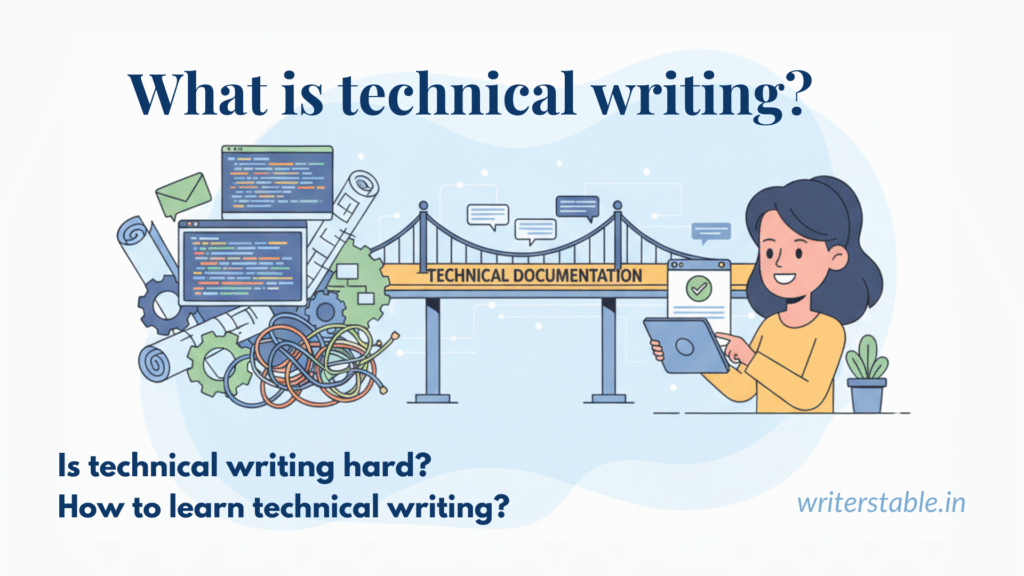Interested in learning technical writing? Don’t know how to get started? As an experienced professional technical writer, I am here to help. This page is the complete collection of all my articles and posts about technical writing.
This page is structured into distinct sections to smoothly guide you through the fascinating realm of technical writing. Whether you’re a budding technical writer or just starting. Should you wish to explore additional topics or have queries about technical writing, feel free to contact us.
Table of Contents
What is technical writing?
Technical writing is the practice of simplifying complexity. Technical writing is the ability to document processes, products, and procedures to enable their users to understand, implement, and follow them easily. Technical writing is precise and concise. It requires relaying information as succinctly and as briefly as possible.
What do technical writers do?
Technical writers empower their customers to fulfill their business functions with as little complexity as possible. They do so through documentation. This documentation can take the form of an article, a procedure, a checklist, or even a video. Technical writers can take complex concepts and break them down into simple, concise, and digestible chunks based on the end user’s persona. Technical writers spend the majority of their time researching the feature or product they document. Interviews, persona identification, and beta testing are a few of a technical writer’s main activities. Technical writing is only about 30% writing (ironic, I know!)
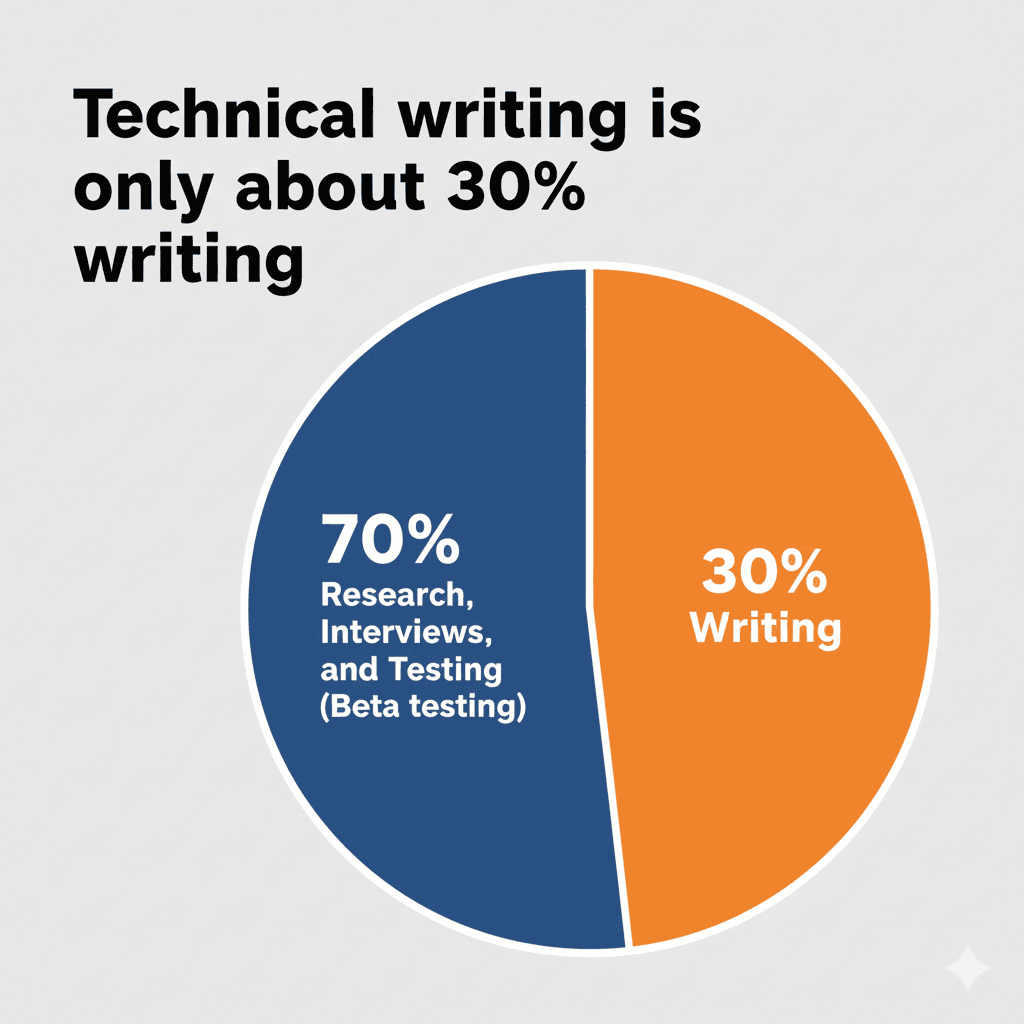
The importance of technical writing
Technical writing plays a very important role in ensuring a product’s success. It enables users of the product to set up and use the product without requiring external help. Technical writing makes complex information clear and easy to understand.
Well-structured documents improve communication by offering clarity and consistency. By reducing confusion and support requests, technical writing improves user experience. Guides, FAQs, and manuals give people the confidence to solve problems on their own.
Technical writing isn’t just about sharing information; it is a bridge between the writer and the audience. Understanding what readers need leads to documents that support learning and better decisions.
Who needs technical writing skills?
Technical writing skills are essential for a wide range of professionals across various fields. Individuals who are entering the writing profession stand to benefit significantly from developing their technical writing capabilities. Beginners who aspire to embark on a career in technical writing often seek the necessary tools and resources to establish a solid foundation. For these individuals, mastering the art of technical writing can open doors to numerous opportunities in industries such as engineering, information technology (IT), and scientific research.
Moreover, mid-level professionals who are already engaged in technical fields may find that honing their technical writing skills can enhance their ability to communicate complex information efficiently. In fast-paced environments like IT and engineering, where conveying detailed and precise information is critical, effective technical writing becomes an invaluable asset. Professionals in these sectors can improve project documentation, create user manuals, and develop training materials that contribute to better understanding and productivity within their teams.
Furthermore, technical writing is not limited to traditional roles. Many professions benefit from clear communication of technical information. For instance, researchers who need to present findings in grants, reports, or peer-reviewed articles require adept technical writing skills to ensure their work is comprehensible to broader audiences. Similarly, marketing professionals in tech companies often need to translate intricate product details into user-friendly language for promotional materials.
Overall, the need for proficient technical writing skills transcends job titles and industries. Whether one is starting their journey in writing or seeking to refine existing abilities, developing these skills can significantly enhance career prospects and overall job performance. Ultimately, recognizing the importance of these skills can lead to greater effectiveness in various technical roles.
Essential skills for technical writers
Technical writing is a specialized field that demands a unique set of skills to communicate complex information effectively. Clarity and conciseness stand at the forefront of these skills. A proficient technical writer must straightforwardly convey information, eliminating ambiguity to enhance comprehension among diverse audiences. By utilizing tools such as the Hemingway Editor or Grammarly, writers can refine their content, ensuring it remains clear and free from unnecessary jargon or filler. These tools provide real-time feedback, allowing writers to focus on readability and grammatical accuracy.
Understanding the audience is another critical skill. A technical writer must tailor their language, tone, and content complexity to align with the knowledge level and expectations of the target audience. Resources like user personas and audience analysis templates can facilitate this understanding, guiding writers in crafting content that resonates with readers. Free tools such as Google Forms can be employed to gather feedback from potential users, ensuring the material being created meets their needs and preferences.
Research skills also play an essential role in technical writing. Writers must have the ability to gather accurate information from credible sources, synthesize that data, and communicate it effectively. Utilizing online databases, academic journals, and industry-specific websites can enhance the quality of research. Tools such as Zotero assist in managing citations and references, making it easier to maintain accuracy and credibility in writing.
Lastly, the ability to simplify complex information is paramount. This skill enables writers to break down intricate concepts into digestible components, ensuring accessibility for a broader audience. Visualization tools like draw.io can aid in creating diagrams and infographics, translating complex ideas into visual representations that enhance understanding. Together, these skills are vital for any aspiring technical writer, and leveraging free tools can significantly bolster one’s ability to excel in this field.
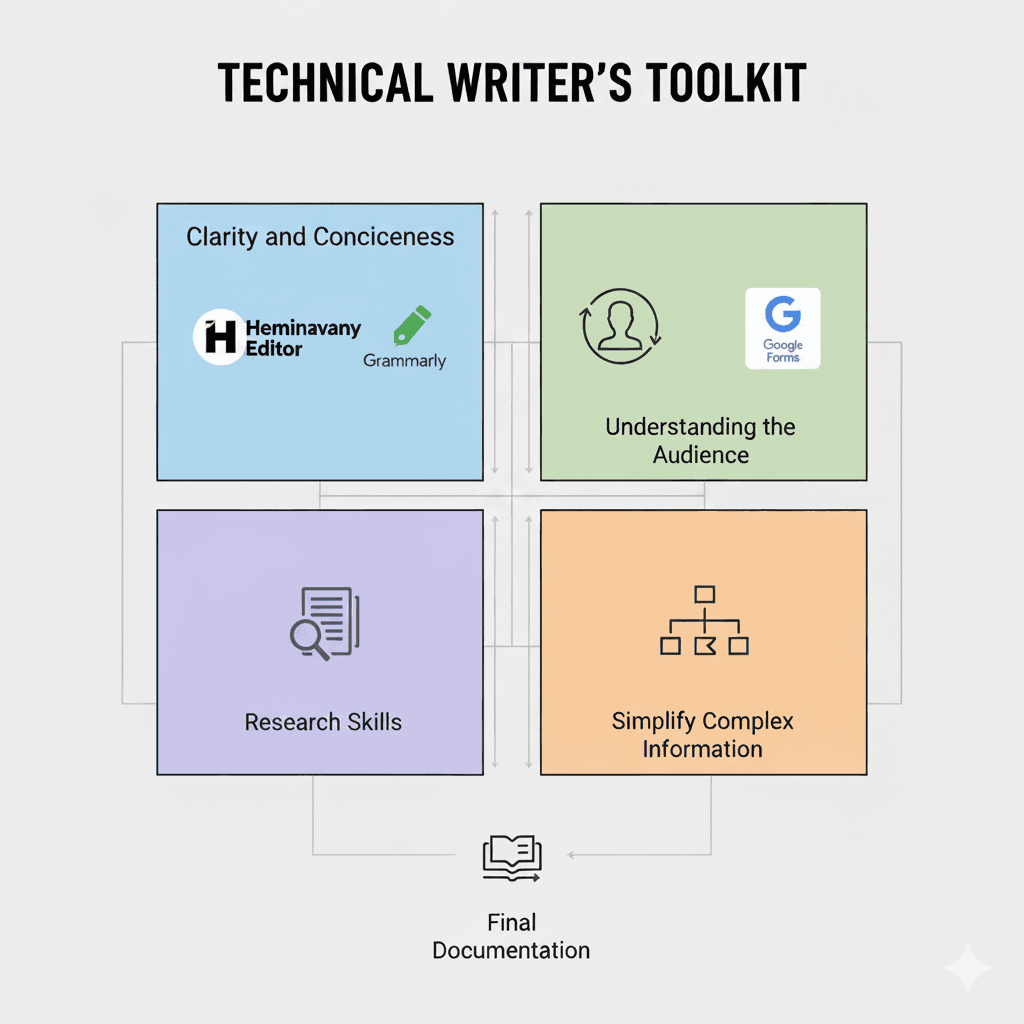
Learn technical writing
You don’t necessarily need a degree or a fancy certificate to learn the basics of technical writing. You just need knowledge of technical writing concepts, tools, and writing skills. The sole purpose of this website is to help you acquire all of those. If you are interested in learning technical writing, then you will hopefully find it useful.
I have categorized all my articles on technical writing into groups to make your technical writing journey easier, more intuitive, and smoother. Dive into any of the following sections depending on your knowledge and experience in technical writing:
Getting started with technical writing
FAQs about technical writing, transitioning into technical writing, learning technical writing, and technical writing portfolios.
Here are a few articles about learning technical writing. For the full list, see this page in full.
- How to learn technical writing by yourself?
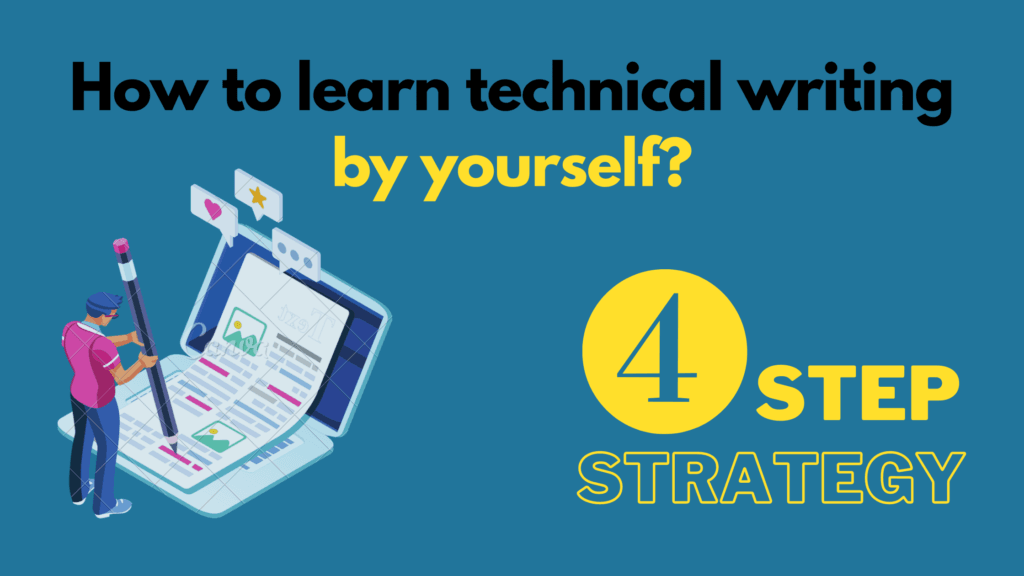
- Essential skills for a technical writer

- Building a technical writing portfolio (easy methods for beginners)

- Technical Writing Career FAQs for Beginners

- What to include in a technical writing portfolio?
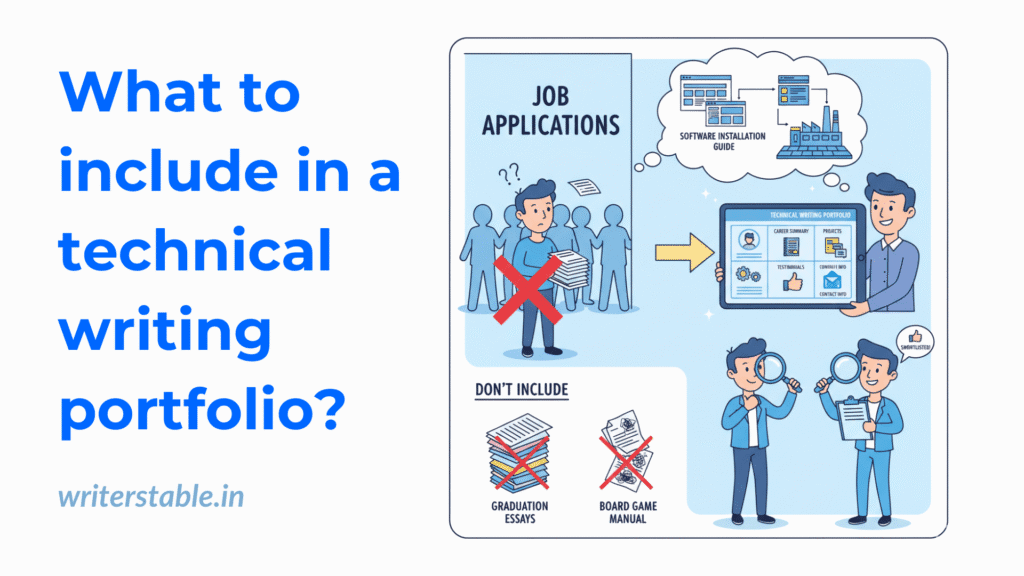
Technical writing concepts
Important concepts in technical writing, like the document development lifecycle (DDLC).
Here are a few articles about technical writing concepts. For the full list, see this page in full.
- Document development lifecycle (DDLC): Important framework for managing documentation
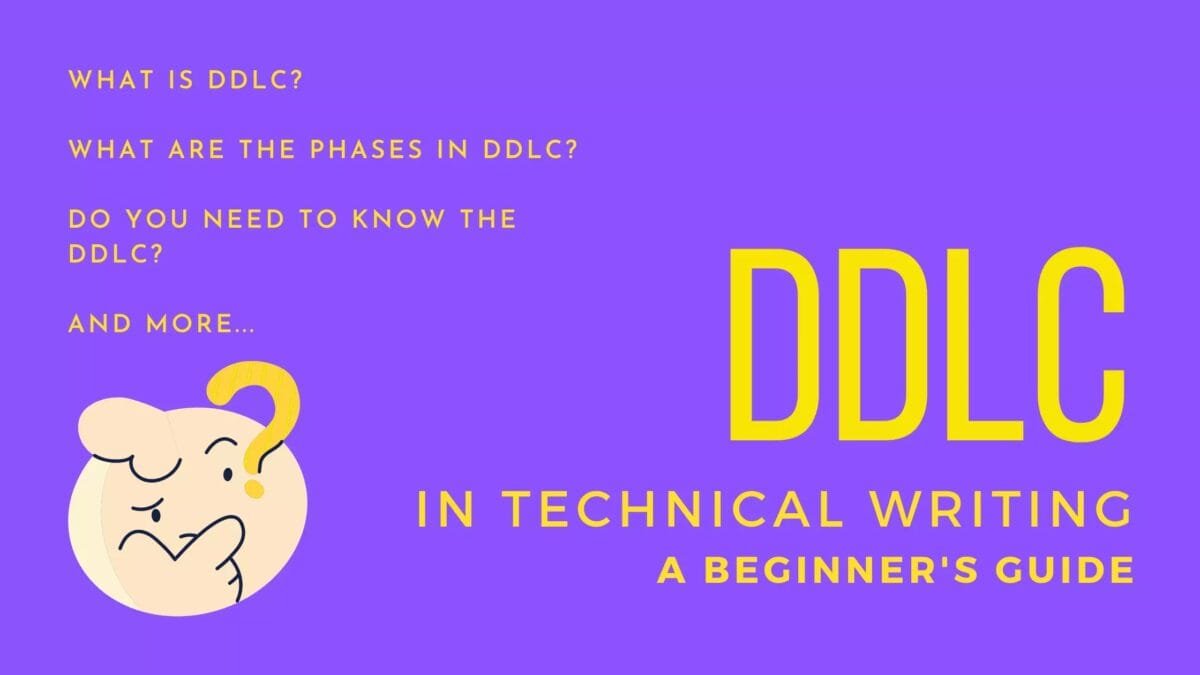
- DDLC phases in technical writing explained

Writing skills and best practices
Guides, tips, tricks, and best practices to become a better writer.
Here are a few articles about writing skills and best practices. For the full list, see this page in full.
- Creating Effective Documentation Is Easy

- Concise writing: Unlocking The Secrets Of Effective Concise Documentation

- Common Rookie Mistakes to Avoid When Starting a Career in Technical Writing

Tools and resources for technical writers
Technical writing tools and resources.
Here are a few articles about technical writing tools. For the full list, see this page in full.
- Useful tools and resources for content creators

- Top Free Writing Tools to Supercharge Your Technical Writing Skills
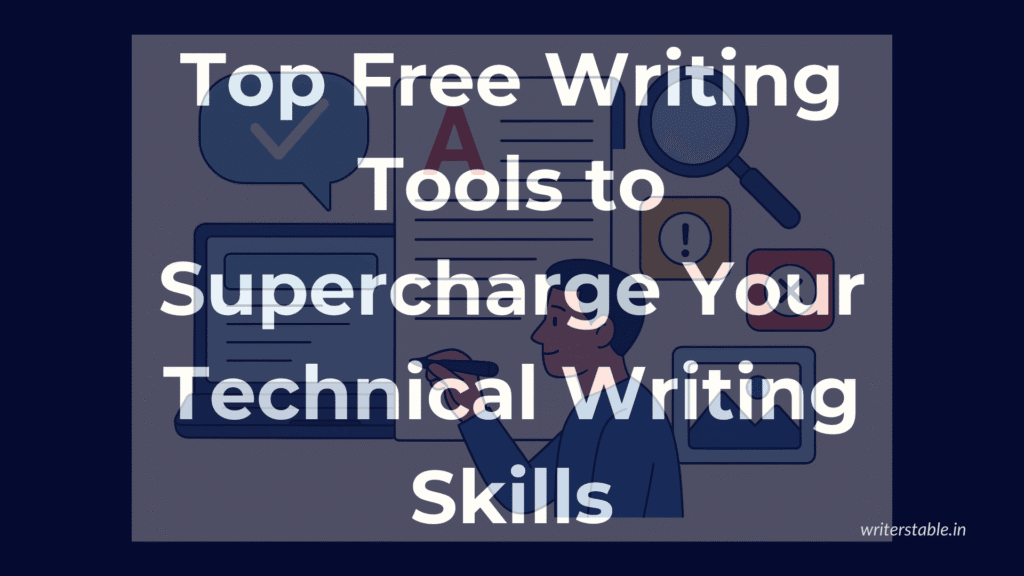
FAQs about the technical writing career
How to start learning technical writing?
Familiarize yourself with the document development lifecycle (DDLC).
Learn a content authoring tool, such as MS Word. If you cannot afford it, consider using free tools like LibreOffice or Google Docs.
Learn an image editing tool such as MS Paint or Gimp.
Adopt a style guide to maintain a consistent writing style. Google and Apple have their own style guides, and they are available online for free.
Practice creating a basic user guide for any software or product you use.
Compare the doc you create with their existing documentation.
Revise your documents to include topics you may have missed. Do not copy-paste.
For a detailed answer, see Technical writing career FAQs for beginners > Learn technical writing.
Is technical writing hard for beginners?
As with any career, technical writing has a learning curve. Technical writing can feel hard if you are new to the industry, but don’t let it discourage you from a very rewarding and well-paying career. It is hardest if you cannot write well. The essence of technical writing is in simplifying complexity. If you can simplify complex topics, then technical writing gets easier. Regular practice, adherence to standards (like style guides), and familiarity with the industry go a long way in making it an easy career.
Do I need a technical writing certification?
No, you do not. Technical writing certifications do help you learn the processes, tools, and practices of technical writing. However, they are not a must-have. You will land a technical writing job and move up the ladder solely based on your knowledge, skill, and experience. For more information, see Technical writing career FAQs for beginners > Certifications.
Do I need a degree in technical writing?
Not necessarily. I am an engineer by education, and several of my technical writer colleagues are teachers, journalists, designers, and art majors. A degree related to the field of technical writing that interests you is preferable (again, not necessary). For example, having a computer degree if you’re interested in software technical writing. That way, it is easier for you to understand the industry (and by extension, the products) for which you write. However, having a degree is a basic criterion for most companies hiring technical writers. For more information, see Technical writing career FAQs for beginners > Educational requirements.
What are some examples of technical writing?
If you have used electronic products, bought furniture from Ikea, or bought a mobile phone, then chances are that you have encountered an example of technical writing. Each of the product types, among several others, comes with a booklet or instruction manual of some kind. This manual is an example of technical writing. Any systematic and themed presentation of information can be considered an example of technical writing.
Are there any technical writing communities?
Yes, there are several technical writing communities and forums. Writethedocs and Tech Writers tribe are quite popular. Reddit, too, has active technical writing sub-reddits like r/technicalwriting and r/learntechnicalwriting. You can join these communities and connect with technical writers of all sorts.
